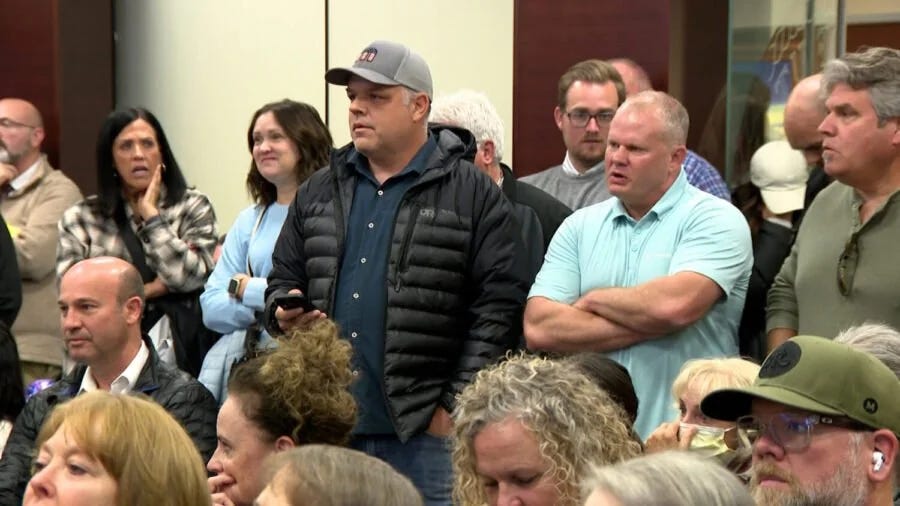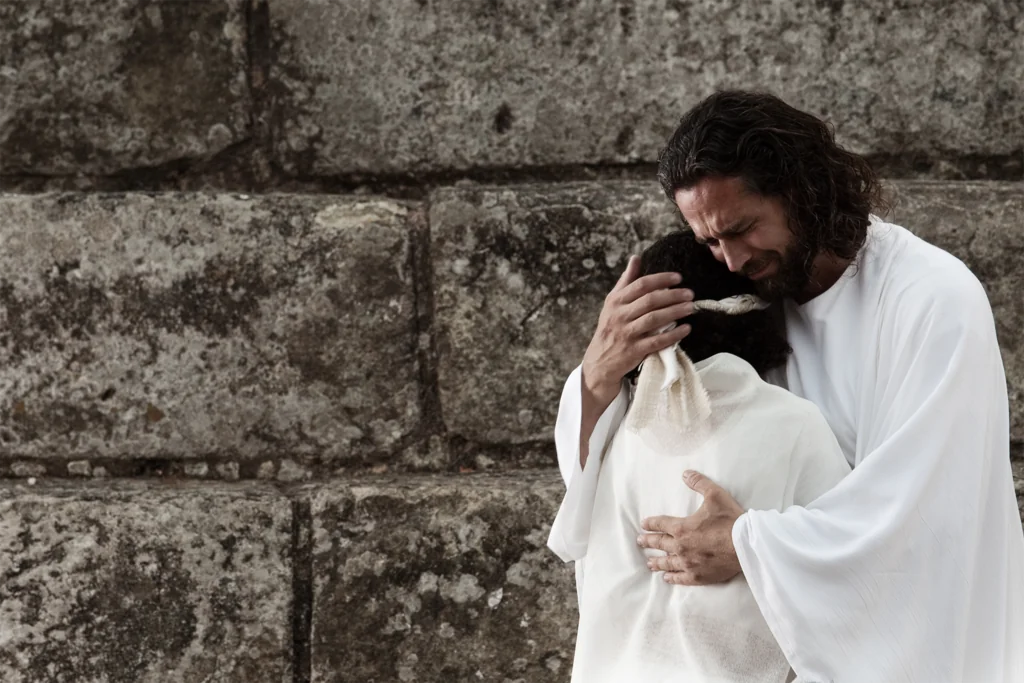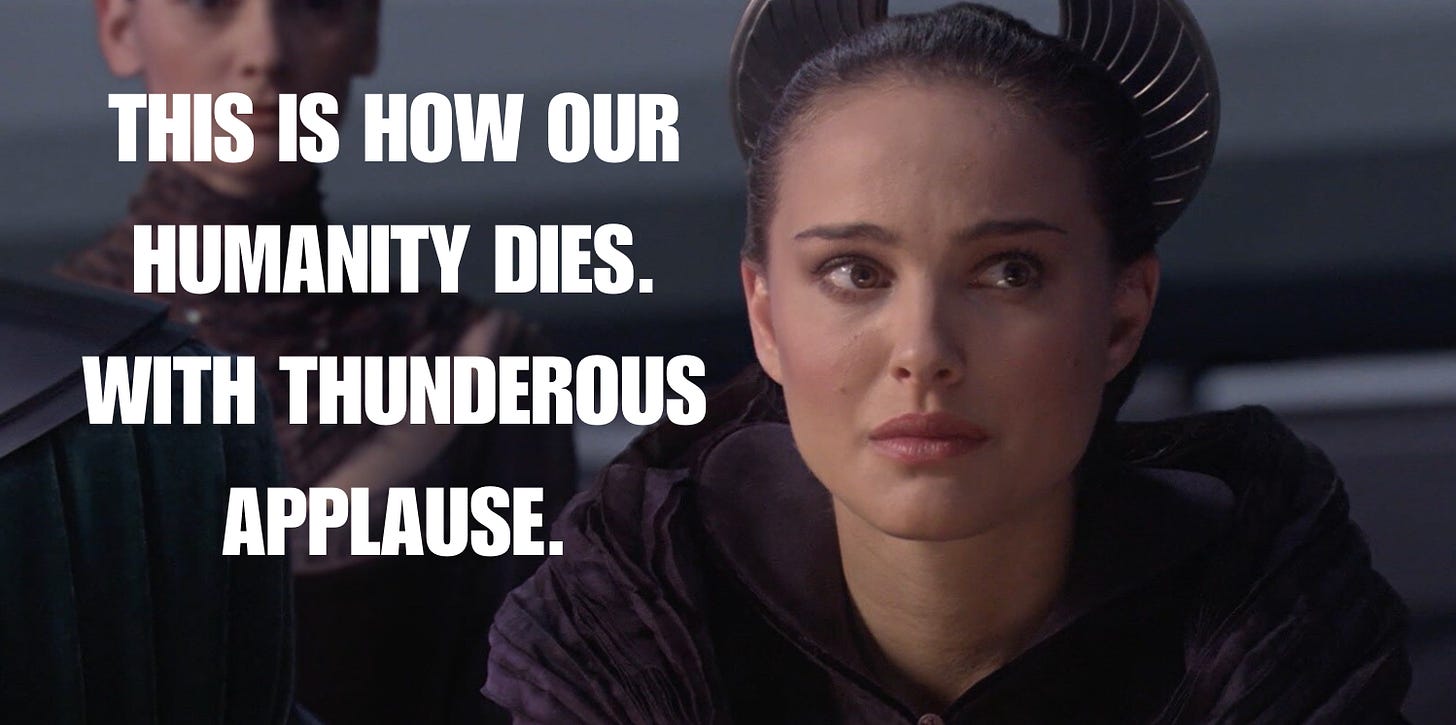This is a weekly newsletter about the art and science of building and investing in tech companies. To receive Investing 101 in your inbox each week, subscribe here:
I've written a handful of times about why I write. I've often pointed to the quote "I write because I don't know what I think until I read what I say." I've talked about my writing as a "secret public journal" and the driver behind my writing:
"My writing each week isn't really meant for anyone but me, at least not in how its designed. I write to unpack how I'm thinking and the implications of the work that I'm doing."
I've thought before about what I should do with my writing. I just hit 20K subscribers, which I’m incredibly grateful for. But my subscriber count doesn't grow as fast as some of the newsletters I love, like Digital Native, Not Boring, or Mostly Metrics. I've noticed that my niche that people seem to really like is venture capital explainers. The Unbundling of Venture Capital, The Puritans of Venture Capital, The Unholy Trinity of Venture Capital. When I write about that I add hundreds or even thousands of subscribers. If I stuck to that, I could do quite well.
But I don't want to. I, occasionally, want to write about very different topics, like Books 2.0, Historical Futurism, or The Renaissance of Rise and Grind. Are they in my niche? No. Do they build my subscriber count? Not usually. So why do I write about them?
Because, like I said. "I write because I don't know what I think until I read what I say." So for better or worse, I write about what I'm thinking about. And the reason I haven't optimized my writing for any particular audience or niche is because I want to write about what I'm thinking about.
This week is somewhat unique because I have only really been able to think about one thing. I find myself in a reflective mood. I'm on paternity leave, so that already makes me pensive, and then the holiday has left me reflecting on a very specific event. But it spans across a discussion on homelessness, faith, Jesus Christ, morals, and stated vs. revealed values. If that's not your bag, I totally get it. You can skip this week and I'll see you back here next week for the VC content you know and love.
The Kaysville Condemnation
I'll cut to the chase to bring you up to speed on the event that has me not just reflective, but repulsed. Bothered to such a degree that I couldn't write about anything else this week.
In Utah, just north of Salt Lake, you have Davis County. Over the last few weeks, there have been three cities in Davis County—North Salt Lake, Fruit Heights and Kaysville—that have taken a firm stance. They're a hard no on making sure homeless people in their communities don't freeze to death when temperatures drop.
For context, Utah can hit 20°F in the winter or lower. Anything below 32°F is freezing. But anywhere below 50°F, people can be subject to hypothermia, frost bite, and exposure, all of which can lead to death.
In Utah, the state requires each county to have winter plans for homeless people. One option is to setup Code Blue shelters when temperatures hit 18°F to provide shelter for "at most 16 unhoused people." There are ~10K homeless people in Utah and 18°F feels crazy low, but sure. We've got to start somewhere.
When the county started looking for solutions, one person thought he had a good suggestion. Don Kraftt, the leader of a Presbyterian church called Mountain Road Church, offered up his church building for the site. Much to Kraftt's surprise, he was met with "intense backlash, and fear, from his neighbors," which made him feel obligated to back out of his commitment. A decision that, when announced at a city meeting, was met with "a round of applause from the crowd."
What's The Catch?
If you're a person, like me, who tries to embrace nuance you might be thinking, "well, what's the catch?" What would lead dozens of people to cause an uproar over trying to prevent homeless people from dying? And to cheer when they're successful?
Unfortunately, as far as I can tell there isn't a lot of reasonableness coming from the dozens of people who showed up to shout down local leaders and the 2K+ signatories on a change.org petition to make sure no warming centers get build in Davis County.

Here's just a smattering of people's concerns:
“We’re concerned about the safety of our children. We’re concerned about property values.”
“These people that are coming to these homeless shelters do not want help. They’re drug addicts. They do horrific things.”
"It could be risky for the unsheltered staying there if they wander inadvertently onto the tracks."
"Most of the homeless people want drugs and cold rather than warm and sober for a night. Just give the homeless blankets and sleeping bags and they’ll be fine."
"It would bring a 'spike in crime,' and an 'uptick of something as obscene as public urination, public defecation, other paraphernalia left around on the ground. All the reasons why I live in Kaysville will be gone."
People will say they want better solutions, more well-equipped facilities for the homeless to help them deal with addiction, abuse, and mental health. Sure. All of that is great. But not even a week later, a homeless person in Utah has already frozen to death.
And none of the people who reacted so aggressively against those centers is tripping over themselves to propose solutions. The Not-In-My-Backyard (NIMBY) crowd is quick to push out a solution without ever looking to be involved in the alternatives.
Therefore, What?
I've seen people making this out to be about Mormons, or conservatives, or whatever. But this is not an identity issue. This is a humanity issue. Jesus made it pretty succinct. Regardless of all the trimmings and rituals of religion, regardless of all the sects and creeds, regardless of all the disagreements, he said there were two things that were the most important:
First and great commandment number one?
"Thou shalt love the Lord thy God with all thy heart, and with all thy soul, and with all thy mind."
And the second? Like unto it.
"Thou shalt love thy neighbour as thyself."
This isn't about what religion these people are. This isn't about what political party they associate with. This isn't about the color of their skin or the language they speak. As a member of The Church of Jesus Christ of Latter-Day Saints, I am often cast in a few specific lens in terms of how people see me. But I have, instead, always taken comfort in a more merciful view of the afterlife.
When we meet God at the end of this life, I feel strongly that there will not be an ID check. A membership card we have to present. There won’t even be a judgement, with a bar and executioner. There be a weighing of who we are. The sum total of our acts, good and bad. And what that turned us into.
And, as for me, I would rather get to that conversation and have God say:
“Well Kyle, you were wrong on the religion. You got the ceremonies and rituals and membership wrong. You weren’t in the right seat on Sunday. But you loved the people around you. You sought to be a good person. And the path you took to get there was to love people.”
My worst nightmare is to get to that point at the end of this life and, as I start the next life, to have God say:
“Well Kyle, you were right on the religion. You got the ceremonies and rituals and membership right. You were in the right seat on Sunday. But you got there standing on the backs of other people. You were more concerned about telling people you were right than you were with doing right.”
The greatest commandment that God gave to people as it relates to how they treat other people? Love them.
Usually I write about my profession. Each week, I analyze aspects of my career and the implications thereof. And that's not bad.
In the words of the great Robin Williams and his John Keating:
"Medicine, law, business, engineering. These are noble pursuits. Necessary to sustain life. But poetry. Beauty. Romance. Love. These are what we stay alive for."
We don't stay alive for property values. Nor can we raise our children on fear. Lives cannot be lived by fear, but only governed by it. True life is the life lived in support of others.
And these parents who applaud the signatories of death upon the less fortunate, they will stand behind the defense of their safety, their homes, their children.
But safety, bought by the suffering of others, is not safety any more than the head thrust into the sand is safety. It is blindness.
Empathy is earned by doling out to others what we would have for ourselves.
Safety? Security? Warmth? Love? Support? Kindness? We cannot craft these things ourselves. We can extend them to others and, in so doing, become a beneficiary of the same.
If you've stayed with me in my writing this week, I appreciate you letting me wax annoyingly reflective. It was all I could think about this week. Anything else felt unworthy.
And if, like me, you were bothered by the way these events played out, I would implore you not to seek out the names and addresses and work places of the offenders. Cancel culture is this season's "eye for an eye."
Instead, look for good that you can place into the world to counterbalance the bad that others have offered up.
One example of that good can be supporting organizations like Shelter The Homeless in Utah and the Utah chapter of Volunteers of America.
God bless.
Thanks for reading! Subscribe here to receive Investing 101 in your inbox each week:






Thanks for sharing! Don't hesitate to write more about what genuinely interests you. Either way it is seen within the "newsletter vibe" 🫣
Thank you Kyle. It’s a very first principles work you just published here.